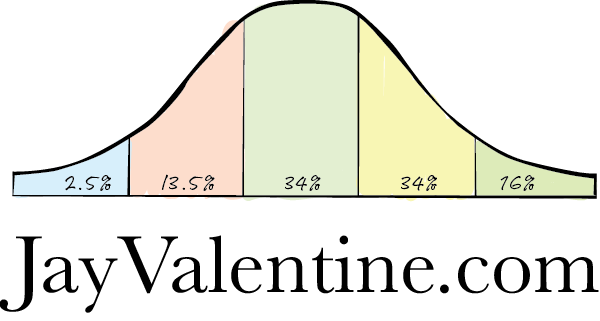
What the heck is MEDDIC?
The first time I ever heard this term was from an IBM VP of Sales who wanted to implement it at a raw startup in Seattle. When I learned what it meant (who is the economic buyer? what are the metrics? what is the decision process?—you all know this BS drill), my reaction was that if a rep did not know that info, this mantra wasn’t going to help much.
Incompetence is not erased by selling mantras.
Or, as Herodotus said 3,000 years ago: “There is no force great enough to compel inability.”
I learned that if you are doing crappy transactional sales, $250,000 down to $15,000, the kind of people you attract as reps may well need this crutch. For sure, their brain-dead sales managers needed MEDDIC.
The concept of MEDDIC is like a diet. All diets work and this should work if everyone uses it all the time. The other question: is the MEDDIC concept a result of stupid sales management or does it encourage it?
Are there better alternatives?
If you deal with transactional junk enterprise sales where people live by quarters, yes there are better systems. The one I like is: Why are they buying? Why are they buying now? Why are they buying from us? What is the risk?
I learned this one at a real transaction company run by low level transactional managers.
This is all your rep needs to understand. And it is quick, makes sense, works easily.
But I do not live in the quarter-to-quarter madness of overfunded, wildly stock diluted tools companies where nobody but the VCs makes a buck.
The larger MEDDIC question is what bad behavior does it encourage? This is probably the worst aspect of MEDDIC.
There is an overwhelming change in sales management today where a VP of Sales (Chief Revenue officer on their always current resume) spends their time in front of Salesforce.com pinging their reps and middle managers constantly on the status of every transaction.
In my day, Sales VPs were in the field with reps working deals hand-in-hand and thus we did not need to meet constant feedback on Salesforce. There was no such thing as a Sales Ops Manager.
Then again, we did not have venture capital companies crawling all over us about revenue per quarter. I never heard of a quarterly quota until the last four years.
Let’s ask a couple of questions to see which camp you, dear reader, are in:
It is September 23rd and the customer wants to buy your product for $250,000 per year. They are ready to sign that PO October 1.
BUT your Sales VP (Chief Revenue Officer, really?) begs them to get the “deal done” in September and reduces the price by $55,000.
OK, so to make an arbitrary sales number in September, the Sales VP is paying the customer (unnecessary discount) $55,000 to move 8 days. Thus, your stupid company is paying the customer $6,800 a day to meet an arbitrary accounting date.
But wait! This is an annual deal. So over 5 years, that sales VP gave up $275,000 (more than the one-year price of the deal) to move it 8 days. He or she does this every quarter on multiple deals. So the damage is in millions of dollars a year in lost revenue.
Sound crazy? Happened to me many times. And the CEO was totally on board! Told the company weekly meeting how great this sales VP was.
It is 3 days before the end of the quarter. You have a deal with a Fortune 100 firm ready to close. The deal is $75,000.
At the last minute, they tell you they are going to quadruple the order, but it will now close 3 days into the following quarter. It just “slipped” “pushed” 6 days but increased from $75,000 to $300,000.
When you tell the VP of Sales, he (in this case, true story), goes nuts and says you “missed your quarter.” And the CEO agrees with him. You get punished.
So the deal “slipped” and quadrupled.
Both are verbs. Which verb describes you? Did it slip? Did it quadruple? You can only pick one!
So dear reader, which camp are you in?
Many of you, particularly if you are under 45, will agree with the Sales VP. If you sell transaction stuff like people who work for New Relic, Chef, Puppet, Applitools, Sauce Labs, LogDNA you think this is how the world should run.
But if you are a bit older, live in the serious sales space where your deals start at $1 million, you see this as crazy.
What does this have to do with MEDDIC?
MEDDIC’s adoption was neither the cause nor effect of that historic point where sales management became irreversibly stupid.
MEDDIC was born at that point where enterprise software firms moved from building valuable businesses to “getting the customer to do what we want on our timeframe.”
MEDDIC was the innocent bystander at the time when sales management bought the concept that enterprise sales was formulaic—any group of Sales Monkeys would be productive if they could only answer 6 basic questions.
MEDDIC was there to train the transaction teams and be their mantra, and that of their sales management who could not sell their way out of a paper bag—MEDICC (and Salesforce now) became the steering wheel they could hold on to because they could not lead, teach, add value to their sales force.
MEDDIC was neither the cause nor the effect of the venture capital driven change in sales management to flogging the sales force to drive revenue at any cost, to get the company sold or get an equity event.
MEDDIC is the artifact that remains today, of when sales management became truly stupid.
And the result of this madness is a COST OF SALES in most enterprise tech companies of 45% to 75% of total revenue. Sales reps may be cogs in a wheel to the MEDDIC types, but it is a very expensive, equity diluting wheel.
So here we are.
There are better ways.
Do not adopt the PTC MEDDIC model if you have a disruptive technology.
That obsolete PTC model will make the guys at the top rich as long as VCs fund the madness. If you are the CEO of a hot startup and choose to bypass dilutive VC funding, bypass MEDDIC as well.
It is perfect for the valueless, third tier firms, with multiple CEOs, 5 sales VPs and kids dialing for dollars.
It is for the quarterly driven company who needs that 3rd tier VC and does not care that there will be almost zero equity for the employees. It is for the sales VP who lives in the office looking at Salesforce all day, running metrics as if he or she were running a Junior Achievement project.
The only metric they miss is the one about everyone getting diluted to zero value—there is no zero in MEDDIC
The MEDDIC model is for the E and F and G round companies who live in the dead zone having missed high growth but pray someone will buy them.
It is for companies producing $100 million in revenue while spending $100 million to get that revenue!
You dear reader, if you have disruptive technology may choose another way—avoid early venture funding and you will not need MEDDIC and the stupid sales management activities that come with it.
